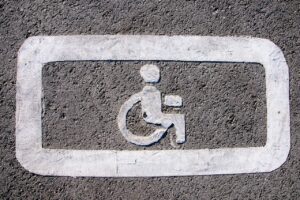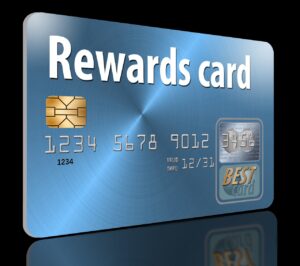Owing back taxes to the government can be stressful and, left unaddressed, can come with serious consequences. The good news is, there are solutions. CPA Adeola walks us and reader Francis through how.
The question
Dear experts,
Thanks,
I don’t have any savings and owe CRA $13,000 in back taxes. Five years ago I started a side hustle. I don’t really have an excuse. It honestly just slipped my mind that that income needed to be added to my filing. I wanna do the right thing and get caught up, but as I mentioned, I don’t have the money. I have no idea what to do?
Francis L., Red Deer, AB
The answer
If you owe the Canada Revenue Agency (CRA) taxes, your first reaction should not be to panic or worry. Back taxes, which is debt you owe the CRA, can happen for many reasons. Some people genuinely forget to file by the due date when life becomes overwhelming.
Other reasons may be a lack of financial resources to cover a tax balance owing, inadequate knowledge of tax requirements, filing late, filing errors and omissions, or failure to file altogether.
The CRA has provided guidelines for Canadians with back taxes or income tax liability. Here are key things to know about filing your taxes in Canada.
Filing deadlines
Generally, the filing deadline in Canada is April 30. If this date falls on a weekend or public holiday, the filing due date becomes the next business day.
Late filing attracts interest and penalties. Even if you do not have a tax return it is important to file in a timely fashion to avoid delays on any benefits you may be eligible for, such as the GST/HST tax credit, Canada child benefit (CCB), and Old age security (OAS) benefits.
Canadians with sole proprietorship businesses unrelated primarily to tax shelter investments have a June 15 filing deadline. If you or your spouse or common-law partner runs a business that is mainly related to tax shelter investments, the CRA requires you to file by April 30,
You must pay by the April 30 deadline to avoid penalties.
What to do when you have back taxes
The first step in dealing with back taxes is taking responsibility and doing what is best for your situation. The CRA expects you to pay taxes even if it relates to a prior year. If you have failed to file your return on time, realized you did not make the correct tax credits or deductions, or omitted other sources of income, such as a side hustle, here’s what you can do to rectify the situation.
Contact the CRA
If you are unsure what to do, contact the Canada Revenue Agency for clarification. If you owe the CRA income taxes, you will need to do an accurate filing or re-filing, even if the deadline has passed. Late filing fees and penalties increase the longer you delay rectifying your back taxes. Ensure you have important details, such as your Social Insurance Number, business number, business name and address, and notice of assessment or reassessment.
Contacting the CRA for failure to file your income taxes or errors and omissions may make you eligible for the Voluntary Disclosures Program (VDP) relief, a debt relief program which minimizes penalties. Note that the VDP is not for individuals who deliberately attempt tax evasion or avoidance schemes.
Gather your tax documents
To complete a filing or re-filing for a balance owed, you need to gather the supporting documents for the specific periods. For example, if you owe taxes because you failed to report income from your side hustle or sole proprietorship business, supporting documents for filing can include financial statements, bank records/statements, client invoices, cash receipts, and vendor payments for business expenses.
Determine your taxes owing
After gathering your supporting documents, you need to determine how much tax debt you have. You can decide to use filing software to calculate your debt. Alternatively, you can contact a tax accountant or use filing volunteer services. Use this Income Tax Calculator to estimate your Federal or Provincial tax obligations.
Plan for payments
After determining how much you owe the CRA in income taxes, you can decide to pay the amount immediately if you have the funds. Unfortunately, due to penalties and amounts owed, some people do not have the financial resources required to offset tax debt. In this case, you can make payment arrangements with the CRA. The Canada Revenue Agency may allow you to pay over time with a payment plan that is reasonable for your situation.
You can contact debt management consulting services or licensed insolvency trustee to help you assess your income tax payment plan and provide the best solution that works. This would require you to itemize your income, expenses, assets, and other debts.
How to make your tax payments
In Canada, many payment options are available for individual and business tax payments. You can make your payments online using a direct bank withdrawal, debit card, credit card, wire transfer, e-transfer, or cash and cheque where allowed.
If you want to pay using the CRA’s My Payment service, you must use a debit card, such as a Visa Debit or Debit Mastercard. You cannot pay using this service with a credit card or Interac Debit card.
Can the CRA cancel my tax debt?
Generally, the Government of Canada requires you to pay your debt; however, if your failure to make payments resulted in penalties and interest, you can request relief through a cancellation or waiver for allowable reasons.
The Canada Revenue Agency may cancel or waive penalties due to financial hardship, especially in situations that affect your ability to afford basic survival needs or your business’s continuity.
In addition, if the penalties make up most of what you owe and a payment arrangement is not feasible, the CRA may cancel your penalties in part or in whole. Other reasons you can apply to waive or cancel your penalties include errors from the CRA, natural disasters, civil disruptions, severe illness, accidents or mental distress. The Canada Revenue Agency will review requests to cancel themon a case-by-case basis.
Next steps
After sorting out your back taxes and paying off your debt, or putting a repayment plan in place, you need to put checks in place to ensure you do not miss deadlines or file inaccurate information. Employed individuals generally have payroll deductions directly taken from their periodic paycheck and remitted to the Canada Revenue Agency.
However, if you have other sources of income, such as investments, rental income, capital gains, or side business income, you need to plan for income taxes. Make provisions to settle your tax debts, including paying installments to the CRA for better cash flow management or putting aside an estimated monthly amount in savings.
Thanks for submitting your question!
Consolidated Credit’s executive director, Jeff Schwartz will review it and give his response here, along with any additional tips that our credit counsellors have to offer. If you need immediate assistance, please call us and a credit counsellor will get you the help you need.
Please note: We try to answer all questions within 48 hours. However, not all questions may be answered on the website. If your question is similar to one we’ve already answered, we’ll direct you to the appropriate response via email. If we need more information, we’ll contact you at the email provided.




